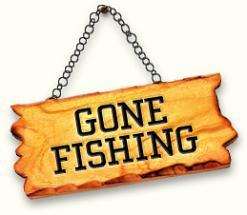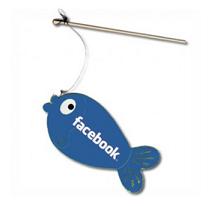How often have we heard the phrase, “Fish where the fish are” throughout our radio careers?
 We all believe this intuitively, and that’s why at Summit 16, we featured the Director of the U.S. Census, Dr. Robert M. Groves, to walk attendees through some of the mega-changes that are occurring within the population. Immigration is flourishing in America. Those who describe their ethnicity in multi-cultural ways are showing rapid growth. And minorities are moving into communities where you’d least expect them to live.
We all believe this intuitively, and that’s why at Summit 16, we featured the Director of the U.S. Census, Dr. Robert M. Groves, to walk attendees through some of the mega-changes that are occurring within the population. Immigration is flourishing in America. Those who describe their ethnicity in multi-cultural ways are showing rapid growth. And minorities are moving into communities where you’d least expect them to live.
Fish where the fish are.
We do this with radio formats all the time. As we watch spoken word formats become more successful in many markets (certainly not all of them, to be sure), broadcasters are jumping on the bandwagon. Of course they did the same thing with Jammin’ Oldies, Arrow, Smooth Jazz, Jack, and other flavors of the month. But that’s the nature of formats, audiences, and markets.
Fish where the fish are.
 So when 800 million people worldwide are on Facebook, and nearly half of Americans have a profile, doesn’t that sound like a lot of “fish” to you? And much of this activity usage tends to be personal rather than commerce-based. That makes Facebook an even more valuable necessity for radio.
So when 800 million people worldwide are on Facebook, and nearly half of Americans have a profile, doesn’t that sound like a lot of “fish” to you? And much of this activity usage tends to be personal rather than commerce-based. That makes Facebook an even more valuable necessity for radio.
The fact is, many Facebook consumers aren’t just users – they are passionate about the service, enthusiastically sharing their lives, tastes, and experiences with their networks of friends. We have not witnessed this type of sea change in the way that people communicate in our lifetimes.
So why is it that radio tends to mail in its Facebook strategy? Sure, every station now has a Facebook “like” page. But that’s often where the thinking stops. Very few stations have put on the brakes to really consider what this all means in the light of a new day for interpersonal communications.
Handing off Facebook posts to interns, allowing anyone at the station to randomly post, using Facebook like a promo machine or as a contest dumping ground misses the point entirely about what’s happening here.
Jeff Pulver (140 Characters Conference founder) talked about this at Summit 16. So did “Radio’s Interactive Superstar,” WTMX’s Chris Petlak, as did Lori Lewis and the NHL’s Washington Capitals’ Sean Parker.
 Facebook isn’t just about going to promotions where there are a lot of listeners, like the way a station would send out the van, a rickety card table, and a couple of interns – just to establish a minimum of presence at a mega-event.
Facebook isn’t just about going to promotions where there are a lot of listeners, like the way a station would send out the van, a rickety card table, and a couple of interns – just to establish a minimum of presence at a mega-event.
It requires more than being there. Stations need a strategy, skill sets, and tactics that are designed to positively reflect and enhance each station’s brand in this space. In the past, radio has been reluctant to adopt new technologies. We were slow to set up websites, slower to stream, and have resisted everything from HD Radio to coupons.
With Facebook, the enormity of its reach and influence cannot be ignored. Learning how to communicate on Facebook is a key ingredient to achieve successful interactivity.
We need to become better fishermen if we’re going to be successful in this social media derby.
- What To Do If Your Radio Station Goes Through A Midlife Crisis - April 25, 2025
- A 2020 Lesson?It Could All Be Gone In A Flash - April 24, 2025
- How AI Can Give Radio Personalities More…PERSONALITY - April 23, 2025




Hi Fred –
Great topic. As an industry we must first change our mindset. Broadcasting is still acting like the narcissistic jerk on a date who only talks about himself and never listens. Such a bore! When we will start listening to the people we care about most?
When you read the Internet guys approach to social media they all say some version of this – Stop “pushing” out messages and start “participating” in a conversation that will “pull” people to you. I had an air talent ask me the other day about what to do on Facebook or Twitter. They didn’t know what to write. I said no one needs you to write anything. No one is sitting and waiting for your post. If you want to start a conversation then ask a question, listen for answers and respond. When you respond you’ve started to engage. You know the old cliche’ -“Ask for advice and you have a friend for life”…it works.
Resist the urge to say “follow me on…, buy my stuff, listen to my show, like me on Facebook. Why should anyone care? What’s in it for them? It’s all about them! Have you provided context that might resemble a reason they should give you any of their valuable time? Just because they liked you on Facebook doesn’t mean they really like you.
Fred you said – “Learning how to communicate on Facebook is a key ingredient to achieve successful interactivity”. Here’s the “how to do it” through a couple of resources that will help everyone develop a strategy for using internet tools like Facebook, Twitter, Tumblr etc.
Amy Porterfield has helped Tony Robbins with Facebook among many others. She did this hour long talk on Problogger.com (another site everyone should read regularly) and it will give anyone the necessary strategy to tackle this platform. Notice right off the bat she talks about “superfans”. Sound familiar?
https://fbinfluence.com/proreplay/
Then there is my favorite, Gary Vaynerchuk. With 900,000 followers on Twitter, a $60 million dollar wine business and clients like the New York Jets who pay for his advice on how to handle social media and engage football fans he has credibility like few others…watch this never seen @cnn interview
https://youtu.be/JaJUhVY1URk
Most questions on how to build a social media strategy will be answered with this information.
Merry Christmas everyone!
Mike Anthony
Mike, as always, thanks for the comments – and the resources. It’s a learning curve for radio, to be surew. But the sheer critical mass and passion that Facebook generates demands we do more than put up pages and ask listeners to “like” us. Thanks so much for making this blog a richer place. All the best to you and your family this holiday season.
Fred-
Good stuff, thanks for the insight. Yes, radio needs to begin with a comprehensive social media strategy that engages its listeners and its potential advertisers. Too often broadcasters implement short term fixes to address long term challenges. To be successful with social media a station needs to do the following:
Identify your station’s social media goals.
Establish a voice.
Communicate regularly and ask questions.
Have a consistent image across all your social sites.
Most importantly, measure and evaluate feedback.
Eric, thanks for the punch list. It’s a great starting point for getting the staton’s collective energies around basic social media priorities. We’re working closely with more stations to tackle these issues. Appreicate you taking the time to comment.
JACOBS team is spot on again! Still can’t believe how many radio stations I see bombarding FB with daily mindless and endless jock babble, hustling for “likes”, and palming the “hack” work off to interns or promotions assistants. How much damage is being done to brands who may actually have “fans” (listeners) who really cared, but weren’t connected with in the way they had hoped or expected… the “10th caller” mentality is being ricocheted into the digital space.
Thanks, Lee, for reading our blog and for taking the time to join the conversation. In radio, we don’t always treat our fans as well as they deserve, and in the social space, they’re ahead of the game. Appreciate your point of view.